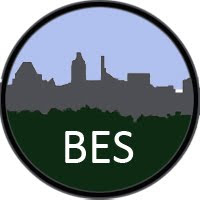The BES Year of Theory
Important Needs for TheoryTwo things are clear about theory in BES. First, it is an extraordinarily important and well recognized tool for integration and motivation in our long-term social-ecological research and education activities.…
Director’s Award 2013 to Prof. William R. Burch, Jr.
Bill Burch is one of the people without whom the Baltimore Ecosystem Study LTER would not exist. Bill has been a pioneer in community and social forestry. He also was a leader in establishing the research tradition of recreation…
Weeds and the City
Few ideas are as loaded -- and as controversial -- as that of “weed.” Combine this familiar term with the equally problematic term urban, and surely, confusion is guaranteed to reign. However Zachary Falck, an environmental historian,…
What Did BES Do Last Year? The 2012 Annual Report
Who did this work?The Baltimore Ecosystem Study, Long-Term Ecological Research Program is a large, complex, and active endeavor. Its participants include 40 researchers, educators, and leaders in community engagement. In addition,…
Coupled? Hybrid? Or Just Systems?
Having recently returned from the first Congress of the Society of Urban Ecology, I can report that there was a lot of talk in the plenary sessions about the nature of cities-suburban-exurban areas as systems. In particular, it was emphasized…
What Does Collapse Tell Us About Resilience?
The adaptve cycle is key to understanding resilience as an integrated ecological and social construct. The cycle is introduced elsewhere in this Web Log (http://besdirector.blogspot.com/2011/01/resilience-ecology-evolution-and.html) as…


